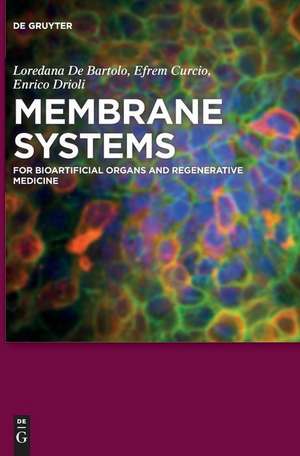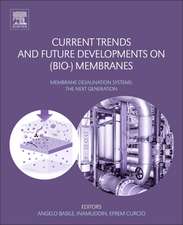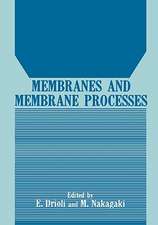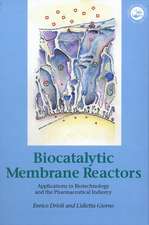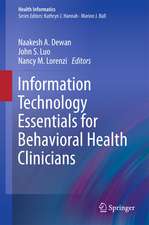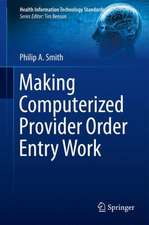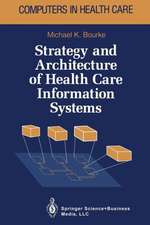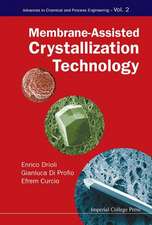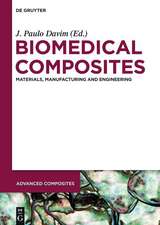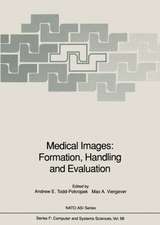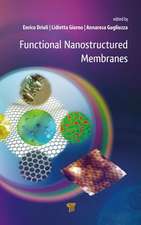Membrane Systems: For Bioartificial Organs and Regenerative Medicine
Autor Loredana De Bartolo, Efrem Curcio, Enrico Driolien Limba Engleză Hardback – 14 aug 2016
Membrane processes today play a signifi cant role in the replacement therapy for acute and chronic organ failure diseases. Current extracorporeal blood purifi cation and oxygenation devices employ membranes acting as selective barriers for the removal of endogeneous and exogeneous toxins and for gas exchange, respectively. Additionally, membrane technology offers new interesting opportunities for the design of bioartificial livers, pancreas, kidneys, lungs etc.
This book reviews the latest developments in membrane systems for bioartificial organs and regenerative medicine, investigates how membrane technology can improve the quality and efficiency of biomedical devices, and highlights the design procedures for membrane materials covering the preparation, characterization, and sterilization steps as well as transport phenomena. The different strategies pursued for the development of membrane bioartifi cial organs, including crucial issues related to blood/cell-membrane interactions are described with the aim of opening new and exciting frontiers in the coming decades.
The book is a valuable tool for tissue engineers, clinicians, biomaterials scientists, membranologists as well as biologists and biotechnologists. It is also a source of reference for students, academic and industrial researchers in the topic of biotechnology, biomedical engineering, materials science and medicine.
Preț: 1202.76 lei
Preț vechi: 1266.07 lei
-5% Nou
230.14€ • 240.29$ • 190.48£
Carte tipărită la comandă
Livrare economică 05-19 aprilie
Specificații
ISBN-10: 3110267985
Pagini: 360
Ilustrații: 200 schw.-w. u. 50 farb. Abb., 50 schw.-w. Tab.
Dimensiuni: 170 x 240 mm
Greutate: 0.64 kg
Editura: De Gruyter
Colecția De Gruyter
Locul publicării:Berlin/Boston
Notă biografică
Cuprins
1. Natural and Synthetic Membranes
Biomedical Polymers
Preparation Techniques
Membrane Configurations
Characterization of Membrane Properties
Sterilization Procedures
2. Basic Issues in Membrane Separation for Biomedical Devices
Driving Forces in Molecular Separation
Transport through Microporous Membranes
Transport through Dense Membranes
Performance Parameters
3. Membrane Artificial Organs
Bioengineering Principles
Hemodialyser
Hemofilters
Plasmafilters
Blood Oxygenator
4. Biocompatibility Assessment
Membrane Trombogenicity
Complement Activation
Activation of Leukocytes
Inflammation Reaction
Bioincompatibility Aspects
5. Engineering of Membrane Biohybrid Organs
Modelling of Mass Transfer
Computational Fluid Dynamics Analysis
Analysis of Metabolic Kinetics
Configuration of Membrane Devices
6. Membrane Biohybrid Organs
Design Concepts
Liver
Pancreas
Kidney
Lung
Cardio-vascular devices
7. Citocompatibility Assessment
Cell Response
Protein Adsorption
Cell-Membrane Interactions
Role of Membrane Properties on Cell Arrangement and Organization
Evaluation of Tissue Compatibility
8. Regulatory and Ethical Issues
Regulatory of Biomedical Membrane Devices
Ethical Issues
